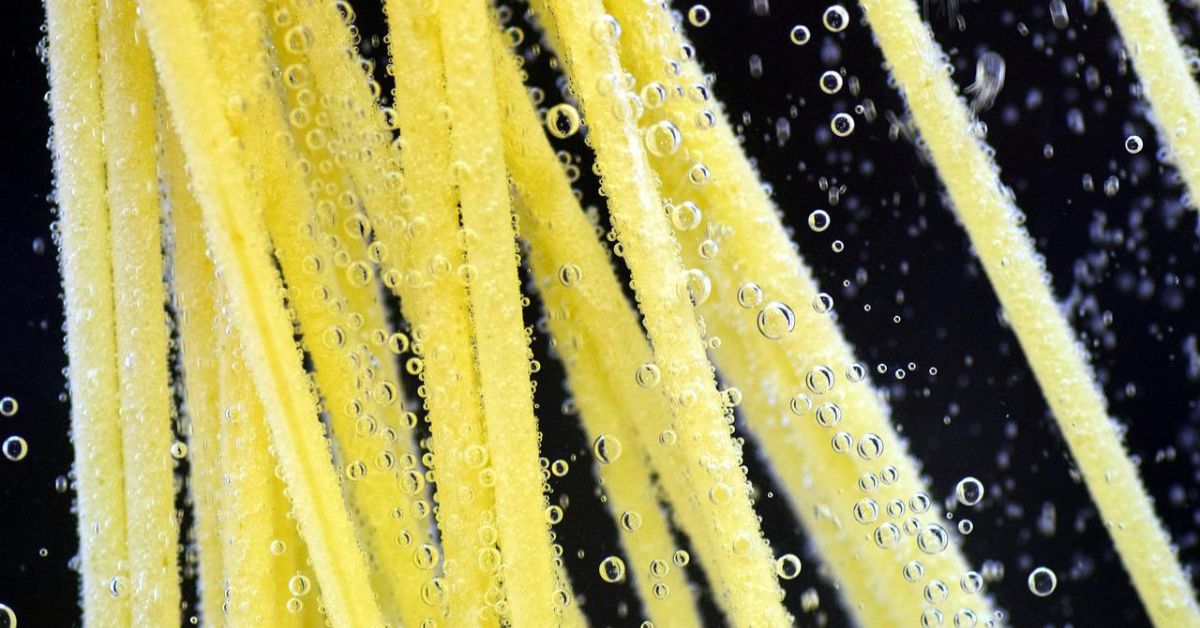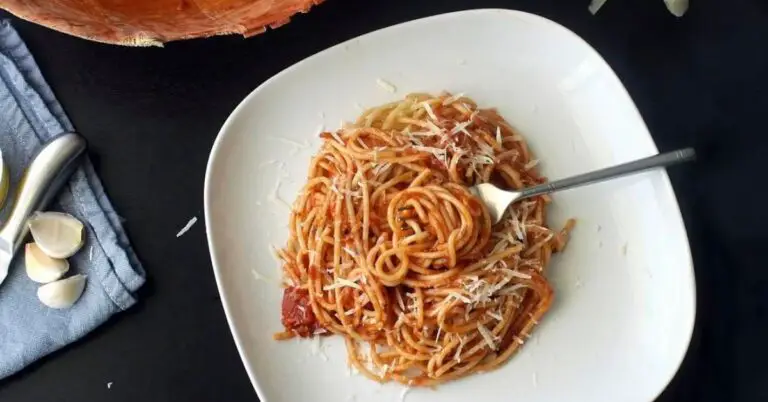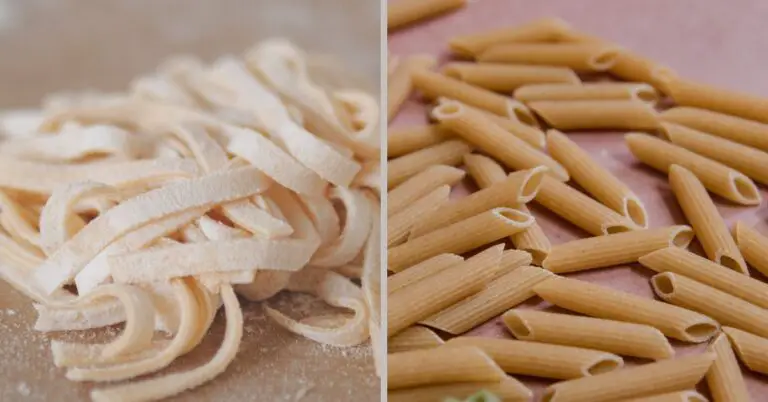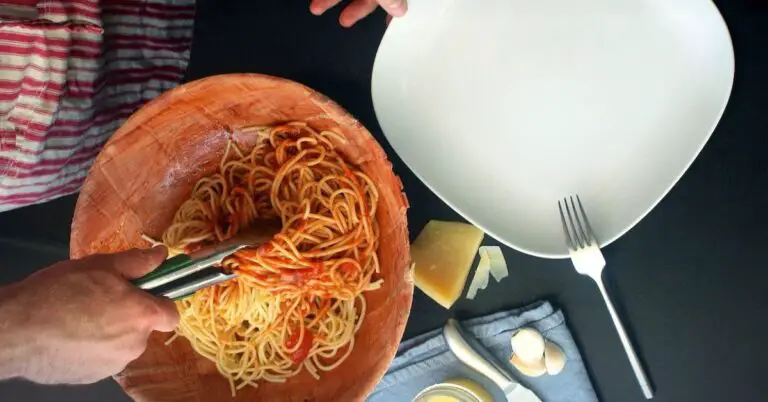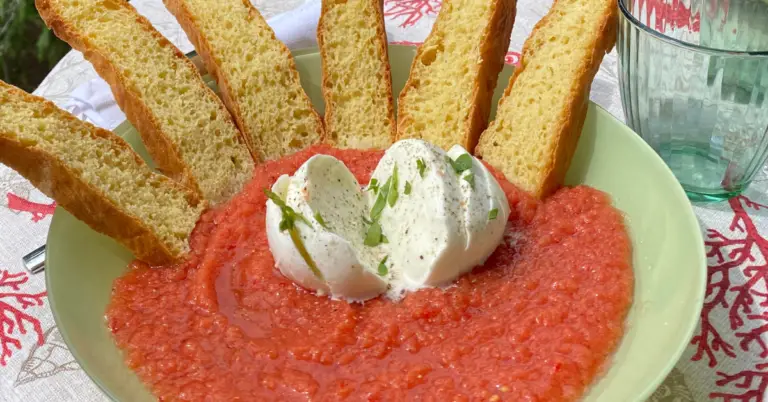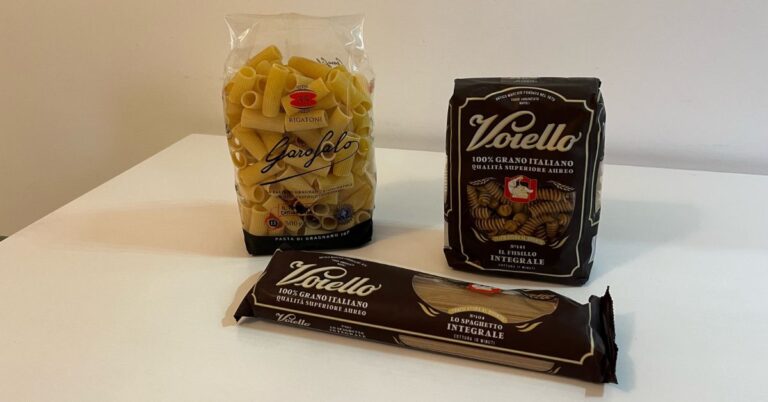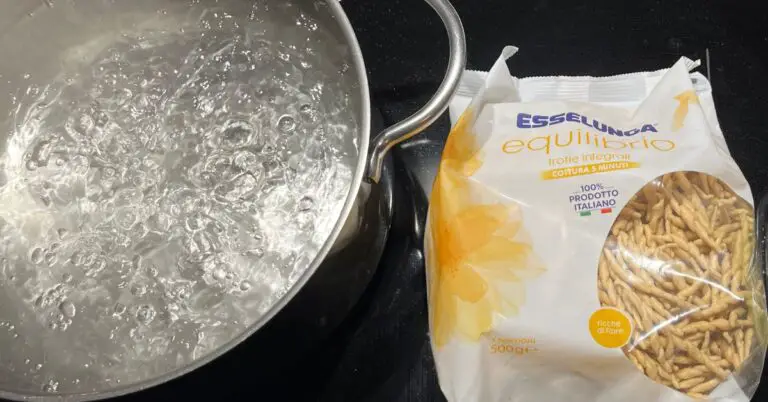A topic that divides many both abroad and in Italy, just before cooking pasta the Italian way, someone still adds a drizzle of oil to the pasta water while it is boiling, but why do they do it, and most importantly, is it right to do it?
Don’t add olive oil to your pasta water; just use a pinch of salt. Adding oil to boiling water is wasteful since it won’t bind to the water, and you’ll lose it during draining. Moreover, oil could coat the pasta, making it impermeable to the sauce you’ll add later. Always add it only after draining and seasoning the pasta.
I’ll quote the words of Chef Lidia Bastianich for you:
“Never, never, never put oil in the water, oil will coat your pasta and will inhibit the sauce to grasp on to your cooked pasta.”
Lidia Bastianich
And as you can see from the video, she’s not the only one who thinks this way:
But if the answer is so simple – that is no, oil in pasta water should never be added – then where does the custom of adding it come from?
(If you’re looking for techniques to prevent pasta from sticking to the pot, skip the oil and read here.)
Update: I found conflicting data. From interviews conducted by YouGov, it seems that Italians are quite accommodating with the practice of putting oil in pasta water. Judge for yourself from the numbers below. However, I advise against it. After all, “acceptable” doesn’t mean “recommended”.
| Putting oil in the pasta water | Italian | American |
|---|---|---|
| Acceptable | 44% | 63% |
| Unacceptable | 43% | 17% |
| Don’t know | 13% | 21% |
Why does anyone add Olive Oil to the Water for Pasta?
According to many, adding oil to the cooking water would be an excellent method to prevent pasta from sticking. It is a custom with no fact-checking, which is therefore wrong.
So forget questions like:
- What oil is needed for the pasta water?
- How much oil should be put in the pasta water?
I am not going to answer any of these questions because adding oil to pasta water is just wrong, and now I will explain why.
The idea derives from the fact that oil, a slippery substance, once poured into the water for pasta then comes in contact with the pasta itself, so it greases and insulates each and every spaghetti or piece of pasta while cooking, preventing it from sticking afterward.
But this is a theory and it is the wrong one because the reasoning does not take into account a fundamental aspect of chemistry: oil and water do not mix together.
The reason? Oil is apolar while water is polar. That is why whenever the oil is poured into the cooking water it collects on the surface without mixing. (source)
So to summarize and be clear: does adding the oil to the pasta water cause the pasta not to stick?
No, the oil in the pasta water will not help the pasta not stick to the pot, simply because the oil cannot mix with the water, it will always remain disconnected.
What’s more, the oil will remain clearly visible on the surface and will end up in the sink once we drain the pasta, you’ll practically throw it away, a real waste, especially if we’re talking about Italian extra virgin olive oil. Because yes, here in Italy some of us use extra virgin olive oil also for cooking and not just for dressing
How do I keep the pasta from sticking to the pot without adding oil to the water?
Now that you understand that adding oil to the water for the pasta is a wrong custom and due to unawareness of basic chemistry, let me explain some simple tricks to prevent pasta from sticking to each other or to the pot.
- The right proportion of water to pasta: to cook pasta well and prevent it from sticking, we must first use one liter of water for every 100 grams of pasta.
- Use a large enough pot: precisely because of the large amounts of water, the pot should be large and tall, so we would have good help to prevent the pasta from sticking.
- Add salt at the right time: salt should be added to the water when it comes to a boil. Wait a few seconds for it to dissolve and then the pasta can be added.
- Respect the given cooking time: cooking times should be respected because the longer the pasta cooks, the softer and stickier it becomes. Here you can find the cooking times for the most popular pasta shapes.
- Stir the pasta occasionally: stirring the pasta for a few seconds after adding it to the water is the best way to keep it from sticking. Continuing to stir occasionally is to keep it from sticking to the bottom of the pot.
Can I add oil to cooked pasta?
Yes, once the pasta is cooked, you can drain it (please, do not rinse it with water), and now if you want you can add a little oil and stir, the important thing is to never put oil in the water while the pasta is cooking.
We Italians add for several reasons oil in the pasta once it is cooked and drained:
- We add extra virgin olive oil to cooked pasta if we want to cook a simple dish such as plain pasta or spaghetti with garlic, oil, and hot red pepper.
- We add oil to cooked pasta once cold to make cold pasta salads, such as this one.
- Those who want to can add oil to any pasta dish already dressed with some sauce to give it even more oiliness. Always remember to add the pasta to the sauce and never vice versa.
- Many Italians love spicy, and if the pasta sauce is not spicy enough, then you can enhance it by adding a drizzle of spicy olive oil.
To recap, do Italians or top chefs put oil in pasta water?
In summary, the mistaken custom of adding oil to pasta water before or during boiling is due to ignorance.
In fact, those who do it believe that they can in this way keep the pasta from sticking to the pot. But in this case, the oil cannot help since it cannot chemically mix with the pasta water, it will simply remain separate and once you drain the pasta it will be wasted completely.
Follow the advice I gave above about not letting the pasta stick to the pot, and leave the oil alone. Unless you want to add it to the cooked and already drained pasta, then you can do that.

